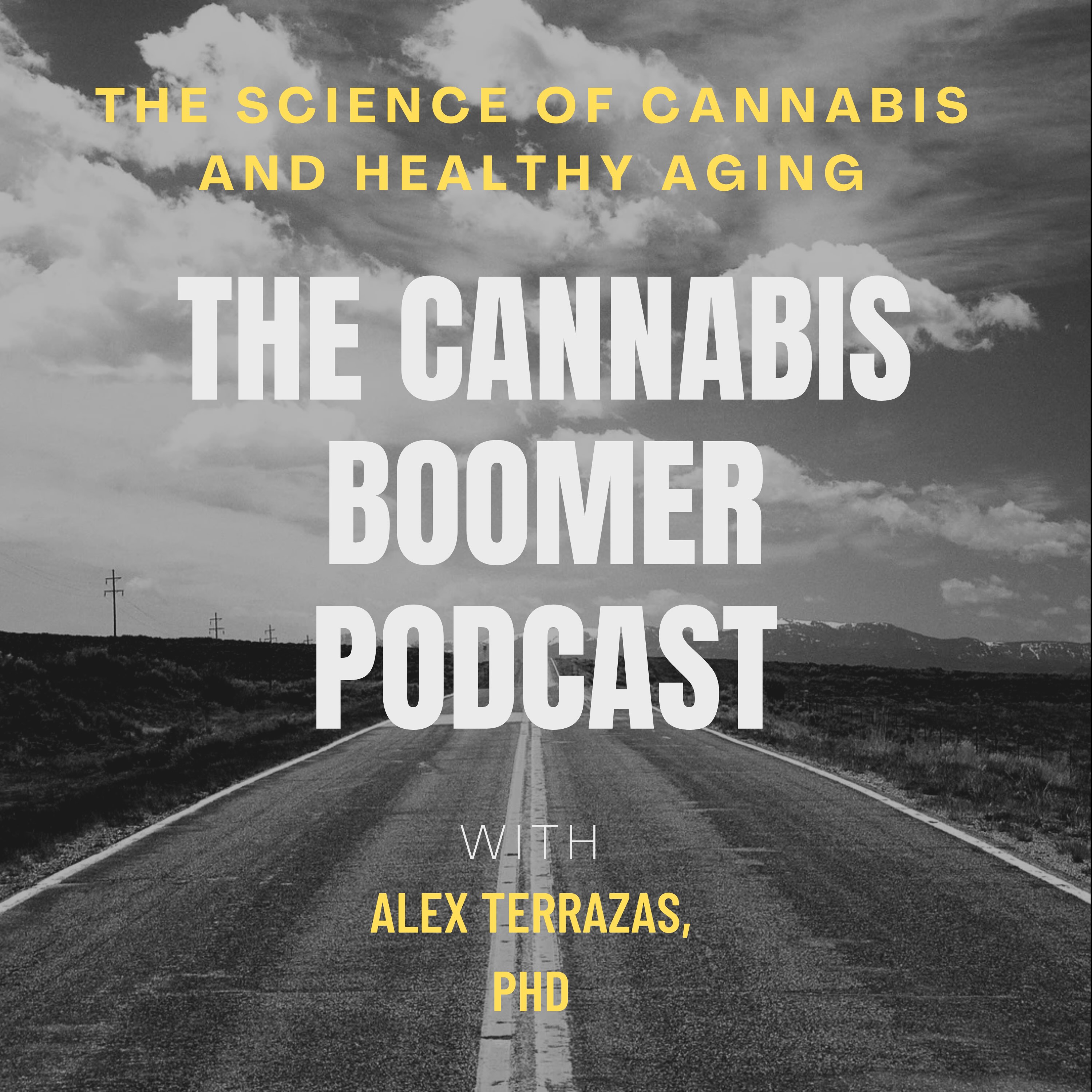The Cannabis Boomer's News and Reviews for October 24, 2025
The Cannabis Boomer reports important news stories and recent findings from cannabis science with insightful comments. Today's science review focuses on cannabis and driving.
This podcast is the sister podcast of The Cannabis Boomer Podcast https://the-cannabis-boomer.captivate.fm.
#cannabis #cannabis boomer podcast #older adults #THC #CBD #science #health
Transcript
[0:0:0.0] Grace
On today's Cannabis Boomer's Journal of News and Reviews in Cannabis Science, Dr. Alex Terrazas PhD gives his take on the latest findings in cannabis research.
But first. here is The Cannabis Boomer's top cannabis news story.
[0:0:18.69] The Cannabis Boomer, Alex Terrazas, PhD
,:A cannabis vape cartridge sold in Ontario has been recalled due to a labeling error that resulted in the product having more than double the labeled THC potency. The Coterie brand Prickly Pear Liquid Diamonds 510 Thread Cartridge was labeled as having 402.26 mg/g of THC, but the correct potency was 936.21 mg/g. Elevated and inconsistent THC levels can lead to over-intoxication and adverse health effects like confusion, anxiety, and in rare cases, psychotic episodes. The recall follows other recent cannabis product recalls in Ontario due to issues like mold and excessive THC variability. Consumers are advised to report any health or safety incidents related to cannabis products to Health Canada.[0:1:16.63]] Grace And now the Cannabis Boomer reviews recent cannabis science publications.
[0:1:22.12] The Cannabis Boomer, Alex Terrazas, PhD
Today's articles are all about driving and cannabis.
First up is Mechanisms of cannabis impairment: Implications for modeling driving performance by Burt and colleagues. This systematic review examines the implications of cannabis impairment for modeling driving performance, highlighting the need for research on the effects of cannabis potency and route of administration. The risk of motor vehicle crashes increases 2-fold after smoking marijuana, and driving during acute cannabis intoxication impairs concentration, reaction time, and other necessary driving-related skills; however, there is a large discrepancy between the types of cannabis products sold and what is researched. The PRISMA guidelines were followed to perform a systematic search of the PubMed database for peer-reviewed literature, and grey literature was also reviewed. It is critical for modeling efforts to understand the effects of cannabis potency and route of administration on driver performance and the associated risk to the public. Experimental protocols involving naturalistic driving environments, smoked rather than vaporized cannabis, and non-lab certified products introduce uncontrollable variables.
Next up: The effects of cannabis and alcohol on driving performance and driver behavior: a systematic review and meta-analysis by Simmons and colleagues. This systematic review and meta-analysis quantified the effects of cannabis and alcohol, alone and in combination, on driving performance and behavior. Cannabis and alcohol, both individually and in combination, were found to impair various aspects of driving performance and behavior. The study reviewed and meta-analyzed data from experimental studies that assessed the effects of cannabis and/or alcohol on measures of driving performance and behavior. The findings highlight the significant risks associated with driving under the influence of cannabis and/or alcohol, and underscore the importance of public health interventions to address this issue. The study was limited by the heterogeneity of the included studies and the potential for publication bias.
The final article today is Driving After Cannabis Use Among Young Adults in Michigan by Hicks et al. This study examined the prevalence and factors associated with driving after cannabis use among young adults in Michigan. Approximately one-third of young adults reported driving after cannabis use, with higher rates among males, those with higher cannabis use frequency, and those with a history of alcohol-impaired driving. The study used a cross-sectional survey of a representative sample of young adults in Michigan. The findings highlight the need for targeted interventions to address the public health issue of driving after cannabis use among young adults. The study relied on self-reported data, which may be subject to recall bias, and did not assess actual impairment or driving performance.
[0:4:38.75] Michael
You've been listening to The Cannabis Boomer's Journal of News and Reviews in Cannabis Science. The Cannabis Boomer Podcast is not just for baby boomers and older adults but for all adults who are interested in the science of cannabis and health. Join the Cannabis Boomer daily for these concise scientific reviews and visit The Cannabis Boomer Podcast for in-depth looks and interviews.
#cannabis #cannabis boomer podcast #older adults #THC #CBD #science #health

